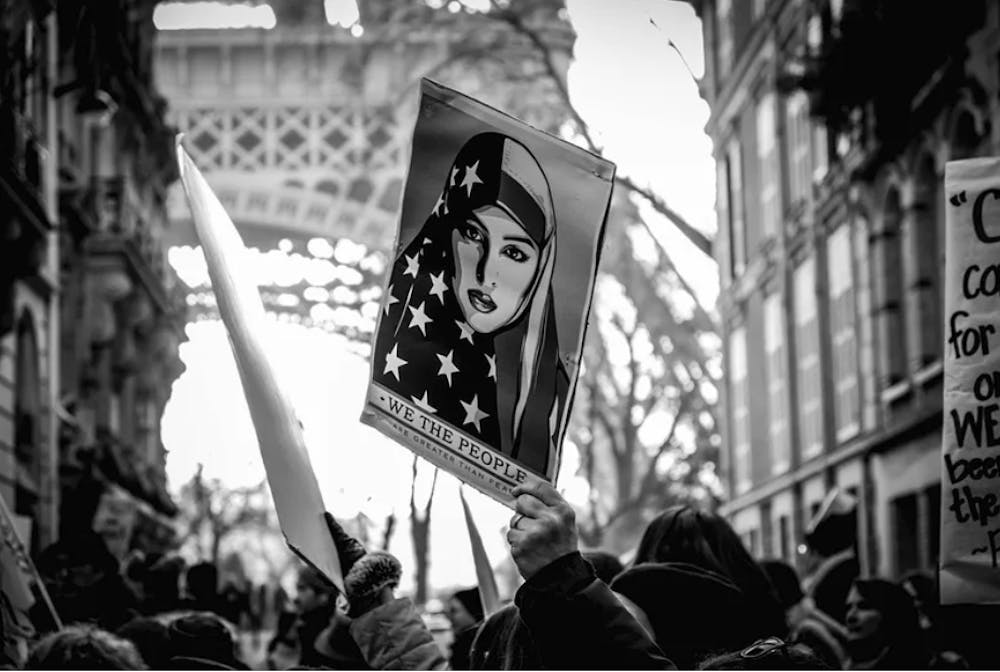I never liked going to school on 9/11.
Every year, teachers would spend the entire day rehashing the events that occurred on one of the darkest days of American history.
“This tragedy was committed by al-Qaeda, an Islamic extremist terrorist group.”
Half of the heads in the class would turn to me, and the other half would turn to the other brown student in the room, whether they were Muslim or not. This was an annual occurrence, and I dreaded it each year. I understand that we can “Never Forget” 9/11, but I wish someone would have mentioned that “Never Forget” has multiple meanings.
Never Forget what happened.
Never Forget the innocent victims and their families.
But most importantly: Never Forget who did this to us.
President Bush said in his address to the nation following 9/11, “The enemy of America is not our many Muslim friends. It is not our many Arab friends.” But despite his heed, anti-Muslim hate crimes rose by 500% after 9/11, between 2000-2009. On September 15th, 2001, a Sikh man named Balbir Singh Sodhi was murdered in a gas station by an angry man who, in the aftermath of 9/11, felt he wanted to “go out and shoot some towelheads” as revenge against Osama bin Laden. Sodhi wasn’t even Muslim, and yet, he was flagged as “the enemy” simply for his appearance. The very possibility that he could be Muslim was enough to justify his killing.
To this day, anti-Arab and anti-Muslim sentiments remain prominent issues around the world. Mosques get vandalized. Women get their hijabs pulled off. The words “Allahu Akbar” are enough to incite fear in the people around us.
We are at a point where the word “terrorist” immediately invokes the thought of Muslims because they’re that closely associated with one another. The murder of Balbir Singh Modhi happened only 4 days after 9/11, and here we are 2 decades later, still combatting violent Islamophobia and racism.
As I reflect on 12 years in the American education system, I realize that there was overwhelming emphasis on Islamic extremism and terrorist groups, but none of that was ever paired with a clarification of what Islam really is.
None of my teachers bothered to mention that those men follow twisted interpretations of the Quran. They didn’t care to mention that Islam is a religion of peace, probably because they didn’t care enough to research the religion themselves. I grew up watching my religion get perverted into a sinister political agenda, with no one to come to its defense. Every year, Arab and Muslim children are made to feel guilty for the actions of people we share no connection with. We are made to feel as if we need to prove ourselves – that we’re the good ones who Americans can trust. And every time, we are reminded that no matter how “good” we are, no matter how quiet we remain, no matter how long we’ve been here or how good our English is, we will never be true Americans. We will always be one of “them.” We will always be the Other.
The burden of educating others inevitably falls on the shoulders of Muslim children, but they should not be forced to become young representatives of Islam because their non-Muslim peers refuse to educate themselves. They should not have to grow skin thick enough to repel the continuous Islamophobia they face. They should not have to answer for the crimes of people that they weren’t even alive to witness. Muslim children deserve to be able to practice their religion freely. They deserve to be proud of who they are. They deserve better. We deserve better.
I used to hope that, in the future, things would change on a global scale for Muslims. I used to hope that other people would start to stand up for us. But I see now that this change is already happening, and is being spearheaded by our own community. As I look on social media and around my everyday life, I see my Muslim peers pushing back against Islamophobia and shutting down Islamophobic stereotypes. I see them educating others about Ramadan and posting about their Eid celebrations. I see the future that I used to wish for when I was sitting in class all those years ago. It’s still my hope that the American education system would work harder to protect Muslim students, but I am proud of my community and how far we have come, and I know that we’re only going to work harder from here.
Photo Credits: https://www.rawpixel.com/image/6111497/photo-image-public-domain-poster-woman



